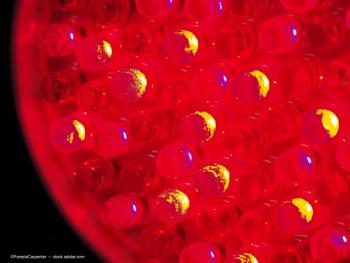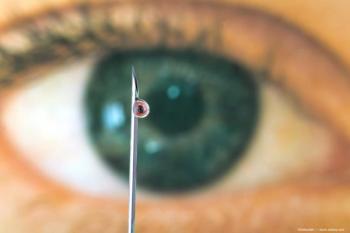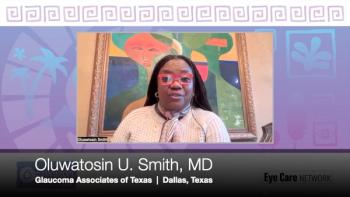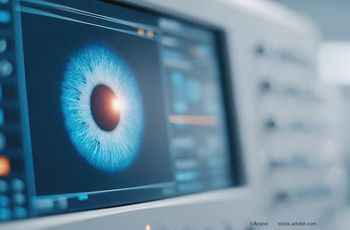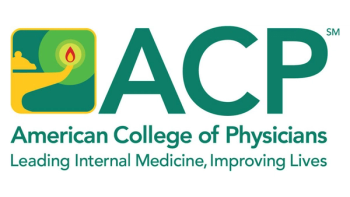
AI-powered home monitoring device: Improved AMD care, money savings
Key Takeaways
- The AI-based home OCT device allows AMD patients to self-test, enhancing treatment monitoring between office visits.
- Study findings indicate home OCT data significantly impacts treatment timing, potentially delaying or expediting interventions.
A home self-imaging device can provide ophthalmologists with actionable insight between office visits for AMD
A recently approved artificial intelligence home-based optical coherence tomography (OCT) device from Notal Vision Inc. allows patients with age-related macular degeneration (AMD) to test themselves at home, allowing physicians to follow patients’ responses to treatment between office visits, the American Academy of Ophthalmology (AAO) announced today in a press release from the 2024 annual meeting in Chicago.
The results of study of the device, presented today at the AAO annual meeting suggest that “daily self-imaging can deliver better care while reducing the burden and costs on patients and the healthcare system.”
The home scan typically takes less than 1 minute to perform in each eye after which the images are automatically transmitted through a built-in wireless connection to the Notal Health Cloud for analysis.
Fifteen retina specialists participated in the study and reviewed the treatment histories of patients with wet AMD (37 eyes), whose standard-of-care treatment decisions were based on in-office OCT scans only. The physicians then reviewed the patients’ home OCT scans and asked to reconsider the original treatment decisions using the data obtained from the device.
The study investigators, led by Paul Hahn, MD, PHD, found that in almost 42% of cases, the physicians believed that the treatment administered could have been delayed. Further, in 35% of cases, the physicians recommended that the patients could have been treated at least a week earlier than the time at which it was provided. The physicians agreed with the timing of treatment in only 23% of the cases within a range of 1 week, according to the AAO press release.
Hahn commented, “While I expected home OCT data to have some influence on decision making, the magnitude was certainly a surprise. However, once we consider that physicians now have 30 times more data than before and can now ‘fill in the blanks’ between visits, this impact makes sense.”
Regarding the cost-effectiveness of the home-based OCT device, Hahn’s statistical model estimated that the decreased treatment suggested by this study would have resulted in a 28% decrease in drug costs, while reduced office visits resulted in proportional savings on in-office procedures and productivity loss, estimated at $159 and $117 per visit, the press release reported.
Hahn continued, “Our current paradigms for treatment of retinal diseases, in particular wet AMD, require injections well in advance of disease reactivation because of the acuteness of the disease and lack of a monitoring safety net between treatment visits. The presence of home OCT data provides this much needed safety net, which not only limits unnecessary treatments but also provides a mechanism to promptly treat patients when needed.
According to the manufacturer, physicians can receive reimbursement for the remote OCT. Three established, dedicated CPT codes for remote OCT, 0604T, 0605T and 0606T, allow physicians and the monitoring center to bill for services every 30 days. Notal is also working with Medicare Administrative Contractors to establish coverage and payment for remote OCT billing codes.
Newsletter
Don’t miss out—get Ophthalmology Times updates on the latest clinical advancements and expert interviews, straight to your inbox.


